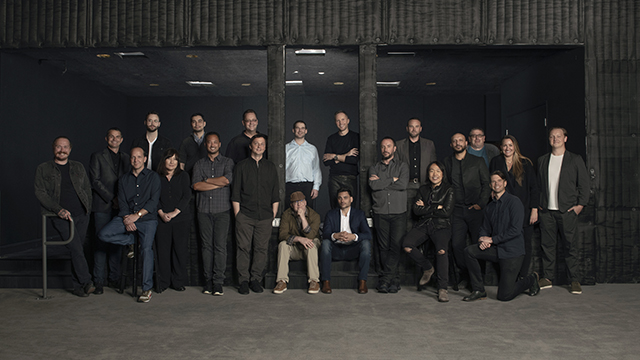In Taylor Kurosaki’s office sits a map of Paris. It’s an old map, one from a year he can’t quite recall from the top of his head — it’s his wife’s, after all. But it inspires him in some special way. Perhaps it somehow served as inspiration for the blazing French chateau set piece in Uncharted 3, a game where he was the cinematic production lead. He had been at Naughty Dog from the original Crash Bandicoot to The Last of Us and now he and his development partner Jacob Minkoff are ready to get back into single-player action adventure games with their new studio, That’s No Moon.
The studio name instantly summons Star Wars vibes as it’s part of an iconic line from the first film. But That’s No Moon is not a studio designed to make Star Wars games; it isn’t like The Coalition or 343 Industries where the name is based upon the series it creates. Instead, it serves more as inspiration for the types of games That’s No Moon wants to develop.
“We wanted a company name that was evocative of adventure, storytelling, memorable characters, and incredible worlds,” said Kurosaki. “That’s the sole focus of That’s No Moon. What’s really unique about our new studio and our approach as a company is that we are solely focused on making immersive, incredible narrative experiences for our players.”
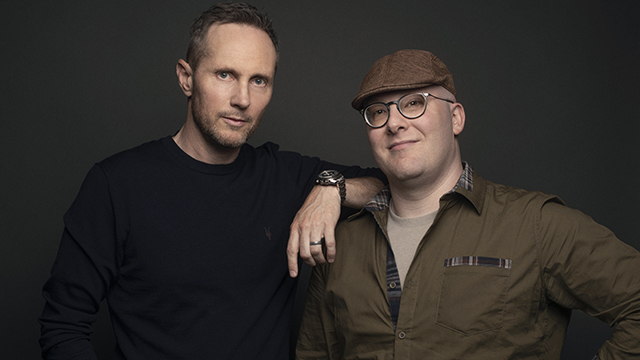
Kurosaki and Minkoff were already known for those types of games, something most clearly shown at their time at Naughty Dog. Minkoff was one of the lead designers on the latter two PS3 Uncharted games as well as The Last of Us and its expansion, Left Behind. And while Kurosaki was cinematic production lead on Uncharted 3, he was the dialogue and video editor on Jak 3 and the editor on Uncharted 2. All of those action games were always at the top of their craft when they came out, garnering critical and commercial success.
But then the two moved away from third-person action games and into the realm of first-person shooters after they migrated to Infinity Ward in 2014. The acclaimed shooter studio was going through a bit of an identity crisis as it was still reeling from the unceremonious firing of Vince Zampella and Jason West in 2010 and Call of Duty: Ghosts’ rocky reception in 2013. After helping to rebuild Infinity Ward, they shipped Call of Duty: Infinite Warfare and the 2019 Modern Warfare reboot, two entries in the series that were both lauded by many for the narratives. It truly did seem as though they were able to channel Naughty Dog’s focus on story into a new genre.
Minkoff and Kurosaki were proud of the acclaimed games they made there, but something else was still calling to them. Even though they were able to translate their craft to another perspective, they still felt the gravitational pull toward the genre that they had worked on for so long.
“I am always looking for the next big challenge, the next big opportunity to innovate,” said Minkoff. “As we were talking with our friends about what we wanted to do next and the next place we wanted to innovate and improve, we talked a lot about going back to our first love which was third-person, narrative-driven, single-player action adventure games. I am super excited coming back to that genre since it’s been about seven years since I’ve touched it and 10 years since I started a new IP in it.”
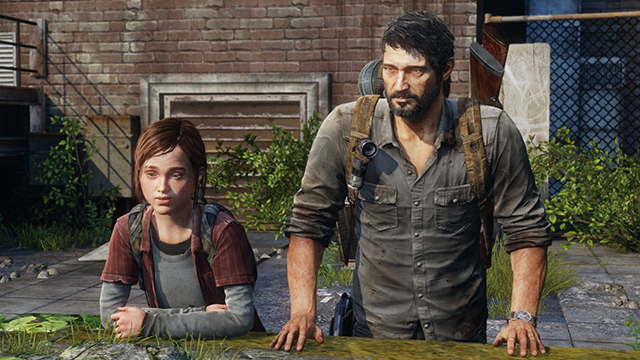
But, as Minkoff said, it has been quite some time since they made third-person action games. The Last of Us, their last full third-person title, came out 2013 on the PS3 mere months before the PS4’s launch. That means that they haven’t even been able to utilize all of the newer tech in the genre they hold so dear to them.
“There have been such advances in technology and techniques since then,” he continued. “We’ve got motion matching, photogrammetry, one-to-one geometry, and all of this really cool stuff out there and we want to leverage that to make a new genre-defining experience in a way that’s never been done before.”
A lot of genre-defining is going to be done through creating empathy through the controller in service of what they’re calling “player-protagonist parity.” It’s a type of design where gameplay and narrative meld together to create a cohesive whole. The two have sat in on Robert McKee seminars, studied screenwriter Blake Snyder, and looked carefully at Rick and Morty co-creator Dan Harmon’s updated story wheel. These tools are important for a team that takes story and the way in which it can mix with gameplay so seriously.
“The point is that Jake and I both designers and both storytellers and that concept carries through to every single person at That’s No Moon,” said Kurosaki. “We expect everyone to be a storyteller and everyone to be a designer and to think like a designer. That’s our secret sauce. It’s not about coming up with the best idea for a story. It’s about seamlessly blending narrative and design together so you don’t see where one starts and one stops. They are this holistic whole. And that’s how we feel we get to excellence in these experiences.”
Minkoff agreed, saying that there were more boundaries to push and higher highs to reach.
“A thing that we’ve been developing for the past decade or more is the question of, ‘How can we put as much story on the stick and in gameplay as possible? How can we make you feel the way the character you are playing as feels in the story so you buy into their emotional choices? How can we put the same pressure on you through gameplay that they are experiencing in their world so that you have that parity with them?’” he said. “That is something that we feel like has not been fully answered or fully tapped out within the narrative gameplay storytelling genre. We want to push further with that on our new project and try to find the boundaries of what is possible.”
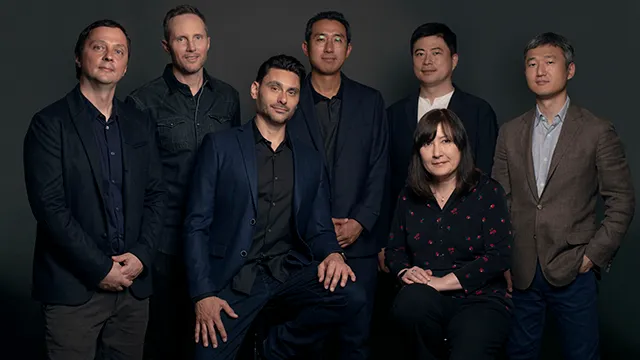
And not all of this is focused on video games, either. That’s No Moon is still “100% dedicated” to its first video game for now, but has bigger plans to venture into other types of media in the future. To them, they spend all of this time creating worlds and complex characters so only seeing their adventures in a video game seems a bit like wasted potential.
“Why should we silo these worlds and these characters only into interactive mediums when there are more stories to tell in the linear space?” asked Kurosaki. “That’s a big part of creating a new studio from the ground up and having a partnership with Smilegate where they want to empower us and believe in us to tell stories both in the interactive space and the linear space. More to come on that later, but there are so many stories to tell and it doesn’t have to just be in a game sequel or a DLC. These stories can continue in the linear space as well.”
All of this work sounds like, well, a lot of work. Naughty Dog and Infinity Ward have been accused of crunch in the past, but Minkoff, as a leader, has a plan for that. The aim is to have “responsible production, scheduling, and design” that prioritizes the most important part of each level. Be it a boss fight, action set piece, or character-building moment, they plan to work from the top down, cutting away the parts that aren’t as vital, and course correcting when necessary.
Making other pieces of media also falls into “responsible production.” Game development is full of ebbs and flows and the plan is to move departments who are less busy on one project onto another.
“As you develop a project, you don’t always need everybody, all hands on deck working on the thing that you are making,” said Minkoff. “There are ebbs and flows in development. So wouldn’t it be great as we have one of those ebbs where maybe the designers and engineers are really focused on prototyping what the next big thing is going to be, but the artists and animators maybe have less on their hands. Wouldn’t it be great if we could put that bandwidth on linear media while we are working on the next big thing?”
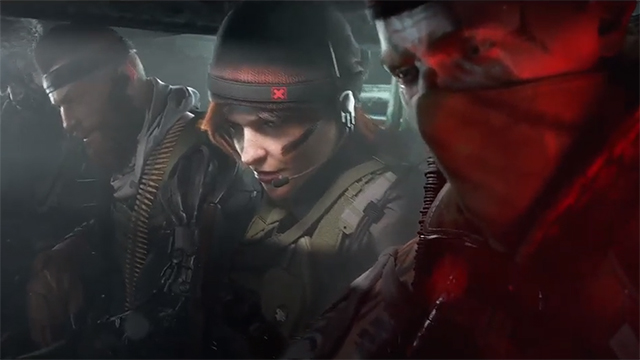
That’s No Moon’s capability to reach for the stars and create fiction in different forms of media is partly due to a $100 million investment from South Korean developer and publisher Smilegate. Smilegate is responsible for the smash hit shooter, CrossFire. And even though CrossFire is known for its multiplayer that has had over 670 million registered users, the two parties were able to realize the value of the solo action games.
“We share core values and they share our vision of making positive, uplifting, thought-provoking stories that facilitate great, fun gameplay,” said Minkoff. “I think that’s where all of our passion for our new project comes from.”
Kurosaki went a step further, saying that this is the most empowered he’s ever felt in his whole 26-year career.
“They creatively see things the way that we see things,” he said. “They are empowering us to be the best version of designers and storytellers that we can possibly be and that ability to have a partner that creatively is in line with us and allows us to do our best work is something that I’ve never seen and never had in my career.”
That’s No Moon is still building its space station. It’s a small team now, but Minkoff wants to have around 100 total crew members in the next year. He’s urging talented people to apply and is even scouting universities to get young, diverse talent.
While getting some Bungie, PlayStation, EA, and Naughty Dog veterans on board is a solid starting point, it’s still tough to build a team during an ongoing pandemic. The logistics of locking down a workspace while most are still working from home is hard. But they have secured an office and it’s one that has a performance capture and virtual production space right within its walls. Having such a facility so close to home is going to be “a really big key to the future success of [the] studio and on this project,” according to Kurosaki. The proximity of where the game gets made and where its cutscenes are shot is a physical way to manifest the symbiosis between gameplay and narrative that they find so important.
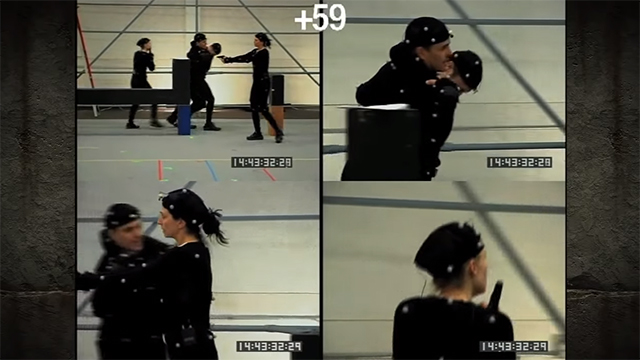
But this stage has another important and more sentimental feature as it was where Naughty Dog shot the first two Uncharted games. While Minkoff joined just after Nathan Drake’s 2007 debut, both are seminal games for the pair as it marked such a transformation in narrative quality in third-person action games. Kurosaki even told Troy Baker on the Retro Replay YouTube channel that Uncharted 2 was “the pinnacle of [his] time at Naughty Dog” and was a project that “just wanted to be made” because it was the result of a mix of the right talent and a team hitting their stride.
That’s No Moon looks like it’s trying to emulate that Uncharted 2 magic, but with an additional decade of experience. Minkoff and Kurosaki have undoubtedly grown since then as has the technology they’re so eager to dive into. And if a team looking to one of the most impressive, genre-defining action adventure games of yesteryear to create the next generation of genre-defining action adventure games, then That’s No Moon’s astronomically high ambitions might pay off and result in a new hope for fans looking for a studio full of accomplished experts that want to push the AAA action adventure genre forward.
